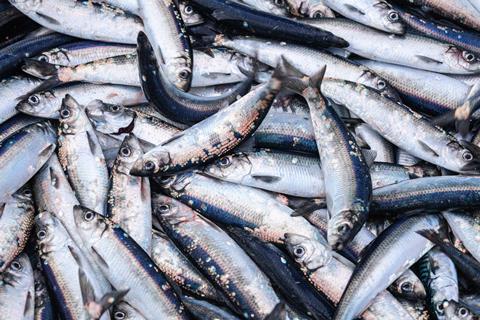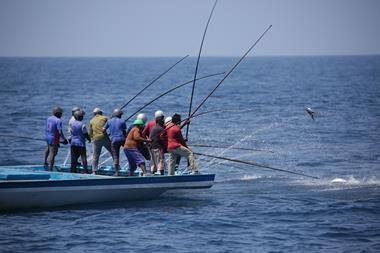
The Scottish Pelagic Sustainability Group has criticised the Marine Conservation Society’s latest sustainability update, which has downgraded north-east Atlantic mackerel from “green” to “amber”.
The organisation, which ensures stock sustainability for mackerel and herring, has dismissed the downgrade as an “overly harsh assessment”.
It referenced the most recent advice from the International Council for the Exploration of the Sea (ICES) which states that the stock biomass is 3,769,326 tonnes, which is 46% higher than the ICES maximum sustainable yield (MSY) value of 2,580,000 tonnes.
When the stock is above the MSY level it is considered capable of being sustainably harvested, argued the group.
“MCS has chosen one matrix to say the stock is overfished which is fishing pressure, but they completely ignored the fact that the stock biomass is 46% higher than ICES scientists’ assessment of maximum sustainable yield,” said Ian Gatt, chairman of the SPSG.
The MCS said Atlantic mackerel had been downgraded because the countries which catch it “generally agree that scientific limits should not be exceeded, however, they don’t agree on how to divide the catches between themselves”.
“Consequently, quotas have been higher than scientifically recommended limits since 2009, exceeding them by between 5% and 80%,” it explained.
The organisation outlined how the most recent catches had been 42% higher than the scientific advice, 1,131,416 tonnes compared to 794,920 tonnes.
“The north-east Atlantic mackerel population has been declining since 2015, which is concerning,” said Charlotte Coombes, Good Fish Guide manager. “Fishing communities and wildlife depend on this species, but continued overfishing is putting both at risk.
“International co-operation is the only way to fix this problem, and UK governments must lead by example. We need to see countries agree on quotas, and extra management measures being put in place to protect stocks.”
Gatt added: “The scientific assessment of mackerel goes back to 1980, the 2015 stock biomass was the highest recorded in the 40-year study period at almost six million tonnes. It’s clear the ecosystem cannot carry that biomass of mackerel, therefore, the stock is back to above-average levels. It is not true to say the stock continues to decline as it has been stable over the last couple of years.”
Gatt explained quota-sharing negotiations had been ongoing for 15 months and have made progress, with the UK chairing the discussions.
The MCS has kept mackerel which is caught by handline in the south-west of the UK as green-rated as it is a low-impact way of fishing and catches are very strictly controlled. There are also protections in place for juvenile mackerel to make sure they can reproduce before they are caught.
SPSG has asked the MCS to consider the Scottish fishery separately as it does for the south-west, instead of being “lumped in together with the northern countries that set high unilateral quotas and fish unrestricted in international waters”.
The organisation has asked the MCS for a meeting to discuss how the ranking is calculated.



















No comments yet